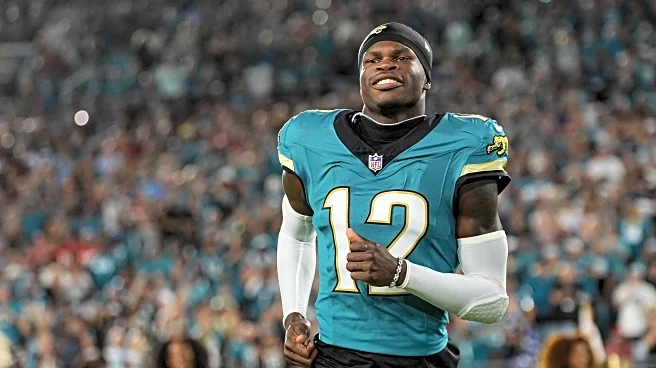What is the story about?
What's Happening?
Media outlets ranging from The Atlantic to CNN to Newsmax have refused to sign a new Pentagon press policy, arguing it threatens access unless reporters agree to restrictions. The policy requires information to be approved for public release by an official, even if unclassified. Journalists risk losing credentials if they sign. The Pentagon Press Association warns the policy could revoke credentials for reporters exercising First Amendment rights. Most outlets plan to hand over badges rather than acknowledge the policy, with only One America News agreeing to sign.
Why It's Important?
The policy could severely limit journalistic freedom, impacting how the press reports on military affairs and government actions. This could reduce transparency and accountability, affecting public understanding of national security issues. The widespread rejection by media outlets highlights the importance of press freedom and the potential consequences of restricting journalistic activities.
What's Next?
The deadline for signing is Tuesday, with most outlets likely to refuse. This may lead to legal challenges as media organizations seek to protect their rights under the First Amendment. The situation remains fluid, with potential implications for future press access and coverage of military affairs.
Beyond the Headlines
The policy raises ethical concerns about the balance between national security and the public's right to know. It could set a precedent for other government agencies to impose similar restrictions, further eroding press freedom and impacting how journalists approach sensitive topics.
















